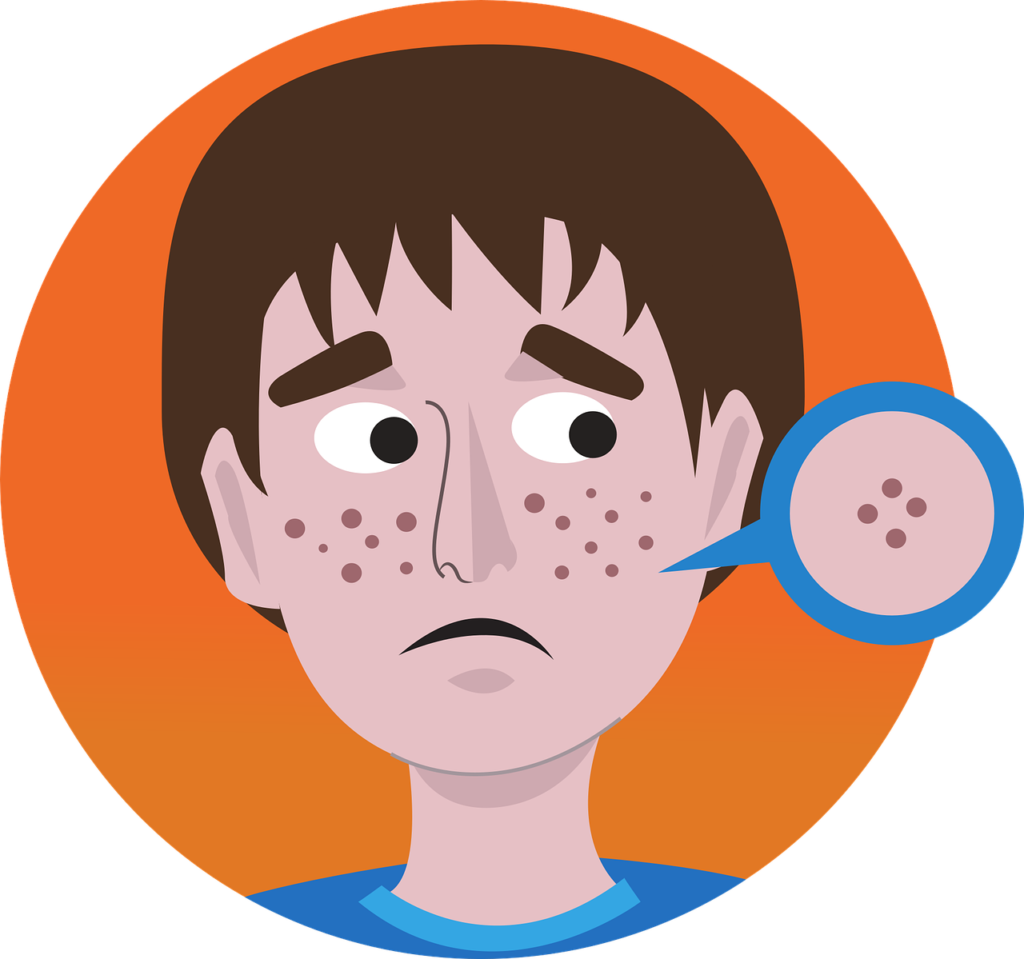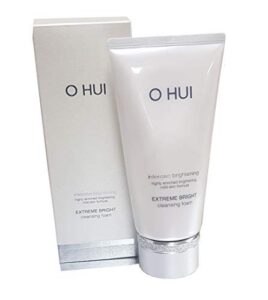What is Acne? A Comprehensive Guide to Understanding, Treating, and Preventing Acne
Introduction.
Acne is a common skin condition that affects millions of people worldwide. It is characterized by the appearance of pimples, blackheads, whiteheads, and other types of blemishes on the skin. Acne can be frustrating and embarrassing, but it is treatable. In this comprehensive guide, we will discuss the signs and symptoms of acne, its causes, and risk factors, how it is diagnosed, treatment and medication options, prevention tips, and more.
Signs and Symptoms.
Acne is characterized by the appearance of pimples, blackheads, whiteheads, and other types of blemishes on the skin. These blemishes can appear on the face, neck, chest, back, and shoulders. The severity of acne can vary from person to person, and it can range from mild to severe. Some common signs and symptoms of acne include:
- Whiteheads
- Blackheads
- Pimples
- Nodules or cysts (deep and painful)
- Redness and inflammation
- Scarring
Causes and Risk Factors.
Acne is caused by a combination of factors, including:
- Overproduction of oil (sebum) by the sebaceous glands
- The buildup of dead skin cells
- Bacteria
- Inflammation
Hormonal changes, such as those that occur during puberty, pregnancy, and menopause, can also contribute to the development of acne. Other risk factors for acne include:
- Family history of acne
- Certain medications, such as corticosteroids and lithium
- Stress
- A diet high in refined carbohydrates and sugar
How Acne Diagnosed?
A dermatologist can diagnose acne by examining the skin and noting the types of acne and where the breakouts appear. The severity of acne is often categorized as mild, moderate, or severe. The diagnosis may also involve lab work to determine if another condition or medical disorder is causing the acne.
Duration of Acne
The duration of acne can vary from person to person. Mild acne may clear up on its own within a few weeks or months, while more severe acne may require treatment for several months or even years. Early treatment can help prevent scarring and reduce the risk of long-term complications.
Treatment and Medication Options.

There are several treatment and medication options available for acne, including:
Over-the-Counter Products
Over-the-counter (OTC) products, such as benzoyl peroxide, salicylic acid, and alpha-hydroxy acids, can be effective in treating mild to moderate acne. These products work by unclogging pores, reducing inflammation, and killing bacteria.
Prescription-Strength Products
Prescription-strength products, such as topical retinoids, antibiotics, and oral contraceptives, may be necessary for more severe cases of acne. These products work by reducing oil production, killing bacteria, and reducing inflammation.
The Importance of Consistency in Treating Acne
Consistency is key when it comes to treating acne. It can take several weeks or even months for acne to improve, and it is important to continue treatment as directed by a healthcare provider.
Alternative and Complementary Therapies
Alternative and complementary therapies, such as tea tree oil, green tea extract, and zinc supplements, may also be effective in treating acne. However, more research is needed to determine their effectiveness and safety.
Prevention of Acne
There are several steps you can take to prevent acne, including:
- Wash your face twice a day with a gentle cleanser
- Avoid touching your face
- Avoid picking or squeezing pimples
- Use oil-free cosmetics and skincare products
- Wear loose-fitting clothing
- Avoid excessive sun exposure
Diet Tips for Acne
While there is no definitive evidence that diet causes acne, some studies suggest that certain foods may contribute to the development of acne. These foods include:
- Dairy products
- High-glycemic-index foods, such as white bread, pasta, and sugary snacks
- Foods high in saturated and trans fats
Eating a healthy, balanced diet that is rich in fruits, vegetables, and whole grains may help prevent acne.
Acne Scars Are a Complication of Acne
Acne scars are a common complication of acne. They can be frustrating and difficult to treat. Treatment options for acne scars include:
- Chemical peels
- Microdermabrasion
- Laser therapy
- Dermal fillers
- Surgery
Research and Statistics: Who Has Acne?
Acne is a common skin condition that affects people of all ages. It estimates that 85% of people between the ages of 12 and 24 experience acne at some point. However, acne can also affect adults, with up to 50% of women and 25% of men experiencing acne in their adult years.
Related Conditions and Causes.
Acne creation is due to a variety of factors, including hormonal changes, genetics, and certain medications. Other skin conditions that may be related to acne include:
- Rosacea
- Folliculitis
- Hidradenitis suppurativa
- Acneiform eruptions
Acne Myths

There are several myths surrounding acne, including:
- Acne is caused by poor hygiene
- Acne is caused by eating greasy foods
- Acne is contagious
- Acne will go away on its own
These myths are not true and can lead to ineffective treatment and unnecessary stress.
Conclusion
Acne is a common skin condition that affects millions of people worldwide. While it can be frustrating and embarrassing, it is treatable. By understanding the signs and symptoms of acne, its causes, and risk factors, and the available treatment options, you can take steps to prevent and manage acne. If you are experiencing acne, speak with a healthcare provider to determine the best course of treatment for your individual needs.



